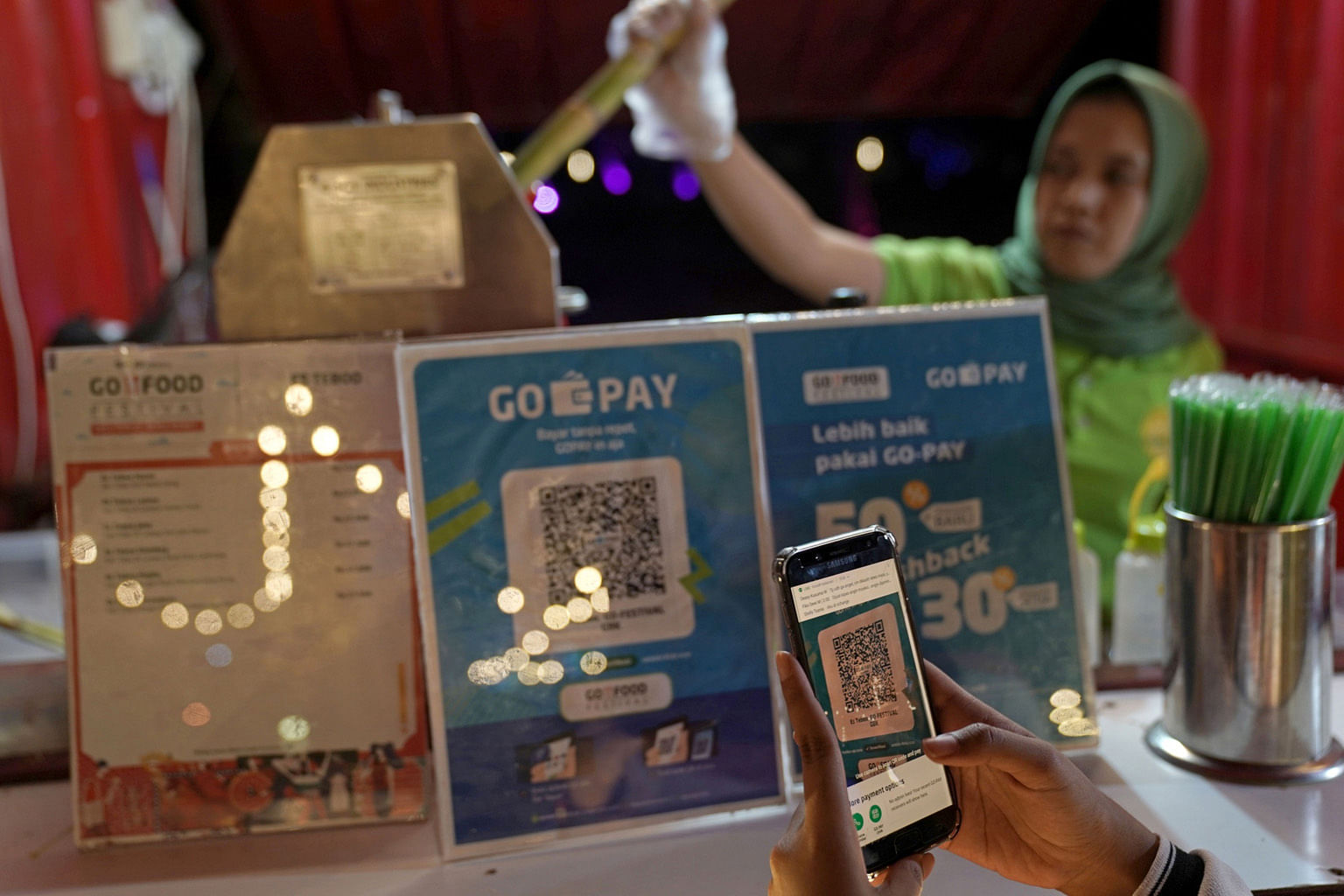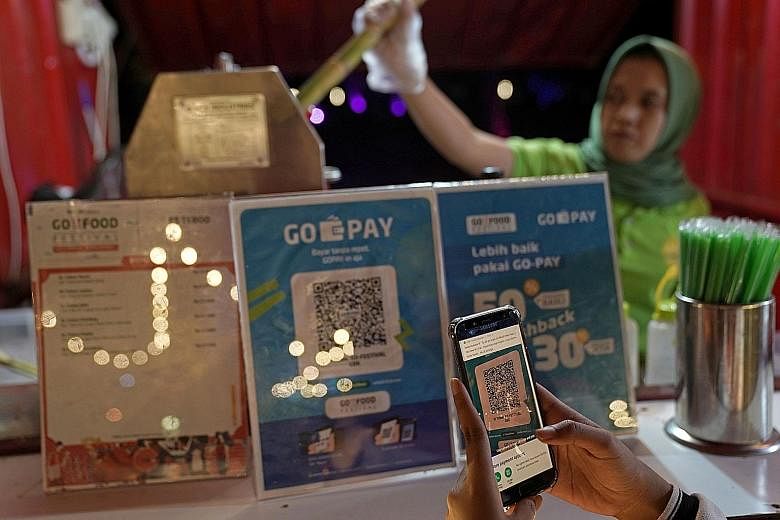I have three measures of how vibrant a city is: How crowded the flights are; how frequent the traffic jams are; how many hipster coffee joints there are.
Jakarta checks all boxes. The Singapore-Jakarta flight is probably the only short flight in the world where first-class seats sell out months in advance. The traffic jams are notoriously unpredictable. Hipster coffee joints are everywhere. You can even get a freshly roasted arabica flat white delivered to you through an app in 15 minutes.
I went to Kota Kasablanka mall to visit Sociolla, the flagship brick-and-mortar store of an online beauty product marketplace, where thousands review products, exchange beauty tips and buy cosmetics. Its website is slick and responsive. When Sociolla organises events, thousands of fans show up. Its success is driven by Indonesia's rising middle class. That is why Mr Christopher Madiam, one of Sociolla's founders, "pivoted" from selling fish (his family's business) to selling cosmetics.
Just a decade ago, Indonesians bought mass-market cosmetics like Ponds for about 20,000 rupiah at neighbourhood stores. There was not much choice nor was there a desire for anything more. Now, with more money, and armed with smartphones, aspirations have changed. Sociolla customers are big fans of Korean brands like The Face Shop, Australian brands like Sukin, and vegan products. Most cosmetic products sell for 100,000 rupiah (S$9.70) and above.
The flagship store was Sociolla's offline-to-online strategy - to engage customers in person, and observe how they use products. It has paid off with retail yields exceeding four times the usual cosmetics store.
The rising middle class in Indonesia echoes the path China took a decade ago. Take the evolution of coffee consumption. Ten years ago, one had only two choices for coffee. Either drink cheap powdered coffee made from sachets at the warung (a small, often family-owned restaurant) for 5,000 rupiah, or sip Frappuccinos at well-appointed Starbucks outlets located at shopping malls for 60,000 rupiah. Now, hipster coffee joints are spawning all over Jakarta.
Technology provides hipster coffee an additional caffeinated boost. Kopi Kenangan and Fore Coffee are both tech-fuelled coffee start-ups that have raised millions from venture capitalists, who hope they will follow in the footsteps of China's coffee unicorn, Luckin Coffee. Through their apps, anyone can get their coffee delivered at 20,000 rupiah to their doorsteps.
Naturally, along with the middle class, financial technology is booming, beginning with digital payments. Every food and beverage (F&B) outlet in every shopping mall has banners advertising generous cashback of 40 to 50 per cent from digital wallets, ranging from Ovo to Go-Pay to Danapay.
It is because there is a natural synergy of digital payments with food delivery and ride-hailing. These F&B outlets are happy to sign up with food delivery services like Go-Food and GrabFood because it increases their customer base and revenue.
But there are concerns about over-exuberance and destructive competition between food delivery services and e-wallets. Given the troubles of Uber and Lyft in the United States, ride-hailing may turn into a customer-acquisition channel for other services, and not a pure ride-hailing play.

Perhaps that's why ride-hailing unicorns Go-Jek and Grab in South-east Asia are forging their own path. While both started out "copying" Uber in ride-hailing, both are now super apps incorporating ride-hailing, food delivery and payment services, with aspirations to provide more sophisticated financial services to customers. Indeed, imitation is the best form of flattery.
Uber is now "copying" Grab and Go-Jek, incorporating Uber Eats, its food-delivery service, into the main Uber app, and turning itself into a super app, just like the Chinese all-in-one apps of Meituan.
OPPORTUNITIES IN RURAL AREAS
Tech may be powered by the middle class, and making consumer life better, but Indonesia is a big country and many basic needs have to be met, especially in the rural areas. The long tail of the rural points to the challenges that Indonesia faces, but also the opportunities.
One company focusing on the rural areas rather than Jakarta is IDN Media. Founders and brothers Winston and William Utomo built IDN as a media company targeted at millennials and Gen Z. Frustrated that Indonesian media was dominated by reportage from Jakarta, which comprised only 4 per cent of the total population, they set up a company to create local content and news, reaching out to the rural and far-flung areas.
To keep IDN going in the early days, Mr Winston Utomo moonlighted. While working as an account strategist at Google Singapore, he saved almost all his salary, living on a meagre $400 a month to fund IDN's operations.
Five years on, they built IDN into a media powerhouse. IDN now has a stable of young content producers who have mastered the art of producing videos in the formats of BuzzFeed, Vice and TikTok.
Like China's news giant Toutiao, IDN is delivering news to Indonesians about Indonesia, using artificial intelligence to keep eyeballs engaged. The ubiquity and the reach of the smartphone have made what was previously isolated connected.
With the ubiquity of smartphones, there is now a chance to use technology to scale education and improve human capital. That is the vision of Ruangguru founders Adamas Belva Syah Devara and Muhammad Iman Usman. Founded in 2014, Ruangguru has connected over 15 million students with 300,000 teachers, and has a presence in every Indonesian city, including in Sulawesi and Papua.
Ruangguru churns out hundreds of videos a month of education syllabuses from pre-school to high school. These content producers are guided by educational specialists, some of whom were trained by Singapore's National Institute of Education.
In just five years, Ruangguru has markedly improved. As a proof point, Indonesians in rural areas are paying out of their own pockets for Ruangguru's services. It is clear that President Joko Widodo hopes to take advantage of tech to transform Indonesia's human capital, when he appointed Mr Nadiem Makarim, the founder of Go-Jek, as Minister for Education and Culture.
BILATERAL LINKS
Indonesia is one of Singapore's closest and most important neighbours. Our economies complement each other and Singapore has been Indonesia's largest foreign investor for many years. Indonesia's growth can only mean many more opportunities for peoples from both countries to work together.
I hope many Singaporeans will travel to Indonesia, learn more about its culture and its people, work there, make friends so that we can understand its challenges and contribute solutions. It is an exciting time to be in Singapore and Indonesia.
After my meetings, I rushed to the airport, braving the rush-hour traffic in the hope of catching an earlier flight back to Singapore.
Unlike my last trip where I was delayed for a day (Unicorns rising in Indonesia, Oct 9, 2018), this time I breezed through traffic and immigration and snagged a seat on an earlier flight, saving myself three hours. It is a good reminder to show up, because you never know when opportunity knocks at your door.
- Chng Kai Fong is managing director of the Economic Development Board.

